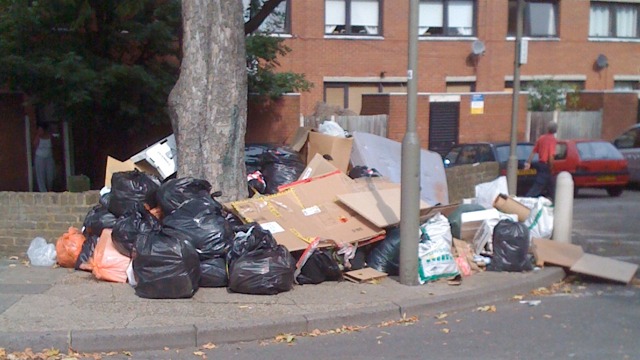
The two big issues that came out of the Shaftesbury Let’s Talk were dog fouling and fly-tipping. Poos and dumps.
These were unsurprising, several had written to us before to raise the issues and they are running problems. I often report fly-tips and have raised the issue of dog fouling repeatedly. But these are problems that just don’t seem to go away.
They are also interesting because they are indicative of a particular type of problem, where the council get a lot of the blame for someone else’s misbehaviour. Somewhere in the act of an owner letting their dog foul the pavement or someone illegally dumping their rubbish the fact it needs cleaning up becomes the council’s responsibility. It is, however, worth remembering that responsibility would never be needed if people were just a little more considerate of their neighbours.
I take a fairly hardline view of both. A lot of the discussion on the night featured ideas like spring cleans, when the council would offer a once a year collection and invite everyone to dump on that day. But while superficially attractive I wonder how many people would change their lives to fit in around it. Would everyone buy a new bed the week before so they didn’t fly-tip their mattress? Would fridges and washing machines only break down and need replacing to the council’s spring clean schedule? And if they didn’t would (or could) everyone store their rubbish for up to a year?
Others highlighted the cost (which can be waived in some instances) but again, I’m fairly hardline. In most of these cases we happily pay the cost of delivery for something new (which may be included in the price), but some balk at the cost of disposal for the old as if the decision that something is trash somehow removes responsibility for the item.
Finally, some believe the council collects rubbish from certain spots or from certain groups for free. One person said it was unfair home owners and housing association tenants had to pay when council tenants and leaseholders could have their rubbish collected for free. This is not the case, but if you see the council regularly collecting rubbish from a fly-tipping hotspot it’s easy to see how the misconception starts. I have spoken to several who have, totally innocently, fly-tipped because they thought the fly-tipping hotspot was a legitimate collection point.
But if there is confusion and different opinions on fly-tipping, I suspect few would be forgiving of dog fouling. Occasionally being responsible for a push-chair and a child on a scooter I know of some patches I avoid simply because the stress of making sure all the wheels and feet avoid the faecal land mines is just too much.
The fact that there are particular roads and pavements with a problem rather implies it is an issue with a few owners (were all dog owners irresponsible the problem would be more uniform). It also suggests that they and their dogs have developed fairly consistent toilet habits. Yet, even with this intelligence it’s hard to do anything.
The council has traditionally had one of the largest dog teams of any council and at times been responsible for most of the prosecutions in the country, let alone London. The difficulty is that most people tend to behave when being watched, so however big our dog team is they will struggle to catch anyone in the act and, therefore, be unable to take any action.
In both cases the council is largely reliant on education in an attempt to change behaviour; while we will attempt legal action it will only ever get a small minority of offenders. Sadly this is a slow process, even when the overwhelming majority of people are responsible, the impact of the irresponsible few is disproportionate.
The council’s website provides more information about the dog control team including contact details should you wish to report anti-social behaviour involving dogs, including fouling. The street cleaning section also provides contact details should you witness any fly-tipping in the borough.
